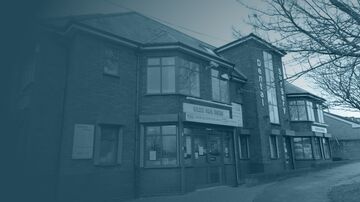
Root Canal Treatment
Repair and restore your tooth and help avoid the pain and discomfort of a cavity or abscess.
Repair and restore your tooth and help avoid the pain and discomfort of a cavity or abscess.
A root canal treatment is used to treat a large cavity that has reached the nerve endings of the tooth. The centre of the tooth and its root canal system will usually be infected by this stage and can be extremely painful. Root canal treatments are available for NHS and private patients across the West Midlands at Blackheath Dental practice. Our expert dentists and endodontists will carry out consultation before diagnosing suitable treatment.
Bacterial infections can develop for a number of reasons including severe trauma to a tooth from an accident, progressive tooth decay from poor diet and oral hygiene, or the result of a leaky filling. A damaged or decayed tooth is vulnerable to minute bacteria creeping in and attacking its soft tissue or pulp. If the bacteria is left to spread then the infection can extend to more vulnerable teeth through the root canal system.
Benefits of root canal treatment
- Save your natural tooth
- Prevent pain returning
- Quick treatment process
- High effective treatment
How is a root canal treatment performed?
A root canal treatment will take two or more appointments depending on how many teeth are infected and where they are positioned in your mouth. Premolars and back molar teeth have two-three roots comprising one or two root canals whereas canine and front incisor teeth only have a single root.
The first dental appointment will include an X-ray and consultation to advise on the most suitable course of treatment. The second appointment will involve a local anaesthetic to numb the area around the infected tooth followed by the removal of all infected and damaged soft tissue. In most cases the tooth will survive and the dentist may recommend a permanent filling or crown to help protect the tooth and prevent further infection.
NHS Pricing bands
Transparent pricing for NHS treatments
Patient charges correct as of April 2023
We're accepting new NHS patients
Treatment Band One
- An examination and diagnosis (e.g. x-rays)
- Advice on how to prevent future problems
- A scale and polish, if required
If you need to see a dentist immediately, an urgent NHS appointment costs £23.80.
£26.80
Treatment Band Two
- Everything in band one, plus...
- Any further treatment such as fillings or root canal work
- Extractions, if your dentist needs to take out one or more teeth
£73.50
Treatment Band Three
- Everything in bands one and two, plus...
- Crowns, dentures or bridges
- This includes more complex procedures.
You only pay once for the highest treatment band, even if multiple treatments are required.
£319.10
Frequently asked questions
How can we help?
Do you have severe tooth pain? Does your tooth hurt when you eat or drink hot or cold foods and beverages? Are there any visible signs of damage, such as a crack or chip in your tooth? If you answered yes to any of these questions, then you may need a root canal. Swelling on one side of your face and extreme pain are also signs that you need a root canal.
A root canal is a treatment to repair and save a tooth that is badly decayed or infected. The procedure involves removing the damaged area of the tooth, cleaning it, and then filling it. A filling is also a treatment to repair a tooth, but it is used for smaller cavities.
No, root canals are not painful. In fact, the procedure usually relieves pain because it removes the damaged tissue that is causing the pain.
If you do not get a root canal, the infection or damage to your tooth will get worse. The tooth may eventually have to be extracted. If you want to preserve your natural tooth, a root canal would be the best option.
Do you still have questions?
We offer excellent care and advice regarding our wide range of treatments to all of our patients.
Contact our main practice
0121 561 3526Find your nearest practice
Hear from our happy patients













